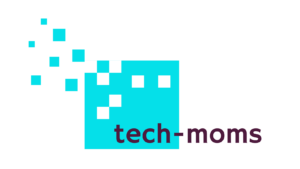Newlane is committed to publishing results on how we are completing our mission. The information we draw from includes reports prepared by Expert Review Committees (composed of experts who hold advanced degrees in relevant fields) who review each course and degree program; feedback from our Advisory Council, and various surveys, including overall annual survey that asks community members about a range of aspects regarding Newlane, as well as questions from End of Course evaluations. We are young and small, so the results should not be considered “data”, but rather a snapshot of the Newlane community’s views and experiences related to the mission and manifesto. For any questions related to this report, or the Newlane Mission, please contact Ben Blair: ben@newlane.edu
The mission of Newlane University is: “To make quality online higher education accessible to anyone on earth.” The mission of Newlane is based on the first tenet of the Newlane manifesto.
Our mission has two key components for online higher education: quality and accessibility.
From these two key components (quality and accessibility), we have focused on specific KPIs for the quality and accessibility of our degree programs:
Improve the QUALITY of curriculum and assessments.
KPI: Successfully transition students to their “next landings”
Relevant Achievements:
Our first graduate (BA Philosophy Spring 2020) was accepted to a Master’s program at University of Nottingham. (Aug. 2020)
KPI: Expert Review Committees vouch that course or degree outcomes
are appropriate.
Relevant Achievements:
All published courses and degrees have been reviewed and vouched for by an Expert Review Committee. (August 2020)
KPI: Maintain very high ratings (over 80% Positive) on student responses on survey prompts relevant to curricular/instructional quality:
From end of course evaluations:
- “How would you rate the clarity of the course goals and objectives?” 66.7% Excellent; 27.8% Very Good
- “How would you rate the course overall?” 55.6% Excellent; 38.9% Very Good; 5.6% Good
- “The course materials are up-to-date, comprehensive & useful.” 55.6% Very Strongly Agree; 33.3% Strongly Agree; 11.1% Agree
- “By the end of the course, I was confident I had mastered the course goals and objectives.” 66.7% Very Strongly Agree; 27.8% Strongly Agree; 5.6% Agree
- “Yes or No: Would you recommend this course to a friend?” 94.4% Yes
From Student and Alumni Satisfaction Survey:
- “The feedback on assessments I received were a good reflection of my mastery of the course goals and objectives.” 66.7% Strongly Agree 33.3% Somewhat Agree
- “Experts were quick to respond to any inquiry.” 100% Strongly Agree
- “Experts adequately responded to my questions.” 100% Strongly Agree
- “How satisfied are you with academic feedback you received from experts at Newlane? (e.g., feedback on projects and in course hearings)” 83.3% Very Satisfied
From Overall Annual Survey:
- “On a scale from 1 to 5, how effective is Newlane University’s curriculum and instruction, in general?” 50%: 5; 50%: 4
- “Students who complete courses and degrees through Newlane University master the course and degree aims, goals, and objectives.” 58.3% Very Strongly Agree; 25% Strongly Agree
- “The assessment process at Newlane University is fair and effective.” 75% Very Strongly Agree; 16.7% Strongly Agree
KPI: Maintain very high ratings (80+% positive) on student responses on survey prompts relevant to students transitioning to “next landings”.
From End of Course Evaluation Form:
“How satisfied are you that completing this course has prepared you in some way for your desired “next landing” (whether that be a particular profession, an advanced degree, etc.)?” 71.4% Very Satisfied; 14.3% Satisfied; 14.3% Somewhat unsatisfied
“Yes or No: Did you achieve, or will you have achieved upon completing your studies, the goals you had when you started the course?” 100% Yes
From Overall Annual Review:
“On a scale from 1 to 5, how effective are Newlane’s efforts at connecting students with their next landings (whether it is further studies, a job, etc.) overall?” 16.7%: 5; 33.3%: 4; 33.3%: 3
Improve the QUALITY of our program administration
KPI: Maintain high ratings (80+% on survey prompts relevant to program administration.)
From End of Course Evaluation Form:
“How would you rate the respect and concern shown for students in this course?” 83.3% Excellent; 16.7% Very Good
“I received timely response(s) to questions or inquiries I had about the course.” 66.7% Very Strongly Agree; 33.3% Strongly Agree
“The instructor(s) demonstrated interest in my learning.” 88.9% Very Strongly Agree; 11.1% Strongly Agree
“My learning was a higher priority than institutional timelines, convenience, etc.” 77.8% Very Strongly Agree; 22.2% Strongly Agree
From Overall Annual Survey:
“On a scale from 1 to 5, how effective are Newlane’s student support efforts?” 63.6%: 5; 18.2%: 4; 9.1%: 2
“The student support efforts are useful and helpful in supporting students through their degree programs.” 72.7% Very Strongly Agree; 9.1% Strongly Agree; 9.1% Somewhat Disagree
“The Newlane University Student support team makes regular contact with students.” 81.8% Very Strongly Agree; 9.1% Strongly Agree
From Student/Alumni Satisfaction Survey:
“I know to whom I can reach out if I have a question or concern about anything in my program.” 100% Strongly Agree
“How satisfied are you with student support at Newlane?” 83.3% Very Satisfied; 16.7% Satisfied
Student support
KPI: Maintain excellent rates (80+%) in Progress, Retention, & Completion rates
Relevant Previous Achievements: 100% Satisfactory Progress, Retention, and Completion rates. (Dec 2020) (based on enrolled, degree-seeking students).
Improve the ACCESSIBILITY of our programs
KPI: See KPIs on first three manifesto tenets below.
Manifesto Tenets:
Education should be available and accessible to every person on earth; making quality education inaccessible or exclusive is immoral. Education belongs in the same category as shelter, clean water, and basic food.
KPI: Expand availability and accessibility (in any way).
- Relevant Achievements:
- Implemented mobile compatibility (July 2020)
- Expanded user residence to 15 countries (October 2020)
KPI: Maintain very high ratings (over 80% Positive) on student responses on survey prompts related to affordability.
- Rate on a scale from 1 (Disagree) – 5 (Strongly Agree) “The cost for my degree program is/was reasonable.” (From Student/Alumni Satisfaction Survey)
- On a scale from 1 (Poor) – 5 (Excellent) Rate your overall educational value of Newlane University. (From Intent to Graduate Form)
- Relevant Achievements:
- 100% Positive responses to relevant survey prompts. (Oct 2020)
Education should be disconnected from geography. Students should be able to learn anything from anywhere on earth. With few exceptions, tying education to geography is a form of exclusion.
KPI: Continue to expand geographic availability.
- Relevant Achievements:
- Expanded user residence to 15 countries (October 2020)
KPI: Maintain very high ratings (over 90% Agree) on student responses on end of course evaluations that convey that geography was not a key factor.
- Rate on a scale of 1-5 “My geographic location was not a key factor in my ability to complete this course. (In other words, you didn’t have to live in a particular city or country or in proximity to a specific location–like a physical college–in order to complete the course.)” [This is as much a check to make sure we are living up to our manifesto as a check that student geography was not a key factor in their enrollment. In other words, it would be surprising if a student gave a negative response. But by keeping this question in the End of course surveys, we stay open to the possibility that geography could be a key factor, and we would want to know about that.]
- Relevant Achievements:
- 100% Strongly or Very Strongly Agree with relevant survey question (July 2020).
Education should be disconnected from a schedule. The most effective time to learn something is when the student is ready, not when the teacher or institution is available.
KPI: Maintain very high ratings (over 90% Agree) on student responses on end of course evaluations that convey that they could work according to their own schedule.
- Rate on a scale from 1-5 “I could work on this course according to my schedule (vs. having to work according to the school’s or professor’s schedule).” [This is as much a check to make sure we are living up to our manifesto as a check that student schedule was not a key factor in their enrollment. In other words, it would be surprising if a student gave a negative response. But by keeping this question in the End of course surveys, we stay open to the possibility that student schedule could be a key factor, and we would want to know about that.]
- Relevant Achievements:
- 100% Strongly Agree or Very Strongly Agree with relevant survey question (May 2020).
Education should not be admission- or permission-based, but freely available upon the asking. The current admission-based system is a vestige of a scarcity model that could only fit a limited number of seats in a classroom. No one should have to be admitted or ask permission to learn a subject.
KPI: Streamline and simplify application process
- Relevant Achievements: Streamlined and simplified application process to enable prospective students to register an account without a counselor (DONE Aug 2020)
Education should not have a prescribed completion time. The amount of time it takes to learn something shouldn’t be decided beforehand; some students can learn something in minutes that will take others days or years to learn.
KPI: Maintain very high ratings (over 90% Agree) on student responses on end of course evaluations that convey that they could work according to their own schedule (and spend more or less time on particular lessons, depending on their understanding).
- Rate on a scale from 1-5 “I could work on this course according to my schedule (vs. having to work according to the school’s or professor’s schedule).”
- Rate on a scale from 1-5 “I could work according to my own pace in this course, and spend more (or less) time on particular lessons, depending on how well I felt I understood.” [Both of these questions are as much a check to make sure we are living up to our manifesto as a check that students can work according to their own pace and schedule. In other words, it would be surprising if a student gave a negative response. But by keeping this question in the End of course surveys, we stay open to the possibility that student schedule and pace could be constrained, and we would want to know about that.]
- Relevant Achievements: 100% Strongly Agree or Very Strongly Agree on both questions (July 2020)
Education should not be set to a specific time period in a person’s life; it should be a process like eating, drinking, and exercise: continual, habitual, and evolving. Students should not be categorized or limited by what they have studied or learned to date.
KPI: Range of student age expanding; Time students remain active students expanding.
- Relevant Achievements:
- Collect more student demographic information during registration (July 2020)
Education should not be competitive or judged by other students’ achievements. Students should only be assessed on whether they have mastered the stated objective or ‘not yet’. Removing competition takes away many of the incentives for cheating or cutting corners.
KPI: Maintain very high ratings (over 90% Agree) on student responses on end of course evaluations that convey that they did not feel competitive with other students.
- Rate on a scale from 1-5 “I felt that I was assessed according to my own understanding of the course goals and objectives, not in competition with other students. In other words, I didn’t feel competitive with other students.” [This is as much a check to make sure we are living up to our manifesto as a check that students don’t feel competitive with other students. In other words, it would be surprising if a student gave a negative response. But by keeping this question in the End of course surveys, we stay open to the possibility that students could feel competitive, and we would want to know about that.]
- Relevant Achievements:
- 100% Strongly Agree or Very Strongly Agree on relevant survey questions.
KPI: Improve reliability of assessments for documenting course and project goals/standards mastery.
- Relevant Achievements:
- Build and implement Assessment Review System (Done Oct 2020)
Educational records, including learning achievements, grades, transcripts, credentials, and degrees should be owned and managed by the student rather than an institution. Students should be able to move freely between any learning institution or organization at any time or for any reason.
KPI: Ease of students sharing their records improving. Ease of transferring records to other institutions expanding.
- Relevant Achievements:
- Record student mastery of all course goals and objectives. (DONE Oct 2019)
- ASIC Accreditation (DONE Oct 2020)
Educational records should include universally understandable, useful, and verifiable documentation of student mastery of explicit learning objectives, rather than an institutional stamp attesting to completion of a vague curriculum.
KPI: Improve reliability of educational records.
- Maintain very positive responses from students on relevant survey questions: “Rate on a scale from 1 (Disagree) – 5 (Very Strongly Agree) “I value the granular record of all the objectives I have mastered in this course.” “Rate on a scale from 1 (Disagree) – 5 (Very Strongly Agree): By the end of the course, I was confident I had mastered the course goals and objectives.”
- Relevant Achievements:
- Record student mastery of all course goals and objectives. (DONE Oct 2019)
- 100% Agree – Very Strongly Agree on relevant survey questions. (Oct 2020)
- Graduate accepted to graduate program (August 2020)
Education should not have a prescribed way of teaching. Prevalent teaching approaches are often culturally, gender or socio-economically biased. While clear and explicit learning objectives can be universally agreed upon, the manner in which these are achieved should be as diverse as the student body.
KPI: Growing library of high quality instructional resources.
- Relevant Achievements:
- Average 2+ expert-vetted instructional resources for each objective (DONE Oct 2019)
- 100% Agree – Very Strongly Agree on relevant survey questions: “The objectives I was expected to master in this course were clear.” “I was assessed on my mastery of the course goals and objectives, and felt I could use any instructional resources to that end.” “The course goals and objectives provided sufficient content/structure to enable me to learn from the provided instructional resources, or to seek out my own resources.” (Oct 2020)
Educational learning paths should be personalized and as varied and diverse as the students pursuing them.
KPI: Expand available learning paths through our platform.
- Relevant Achievements:
- Average 2+ expert-vetted instructional resources for each objective (DONE Oct 2019)
Education should not be at the service of institutions, but at the service of learning. Organizing education around institutional timelines, schedules, expertise, records, and convenience is efficient for institutions, but limits the student, and by extension humanity’s potential.
KPI: Maintain very high ratings (over 90% Agree) on student responses on end of course evaluations that convey that they felt their learning was a higher priority than institutional timelines, convenience, etc.
- Rate on a scale from 1-5 “My learning was a higher priority than institutional timelines, convenience, etc.”[This is as much a check to make sure we are living up to our manifesto as a check that students feel their learning is a higher priority than institutional timelines or convenience. In other words, it would be surprising if a student gave a negative response. But by keeping this question in the End of course surveys, we stay open to the possibility that students could feel that their learning was a lower priority than the institution’s convenience, and we would want to know about that.]
- Relevant Achievements:
- 100% Agree – Very Strongly Agree on relevant survey question: Rate on a scale from 1-5 “My learning was a higher priority than institutional timelines, convenience, etc.” (Oct 2019)
Our efforts to collect feedback from community members on the manifesto are ongoing. To date, we don’t have anything like a consensus from the community on specific priorities for improvement, but we’ll continue to solicit and monitor their feedback. Given our small size, it’s premature to draw any firm conclusions from the responses we have gathered from community members, but so far, they seem to be sending positive signals on our efforts and alignment toward our mission and manifesto. We continue to be committed to the vision of education articulated by our manifesto, and working to realize it.
For any questions related to this report, or the Newlane Mission, please contact Ben Blair: ben@newlaneuniversity.com




